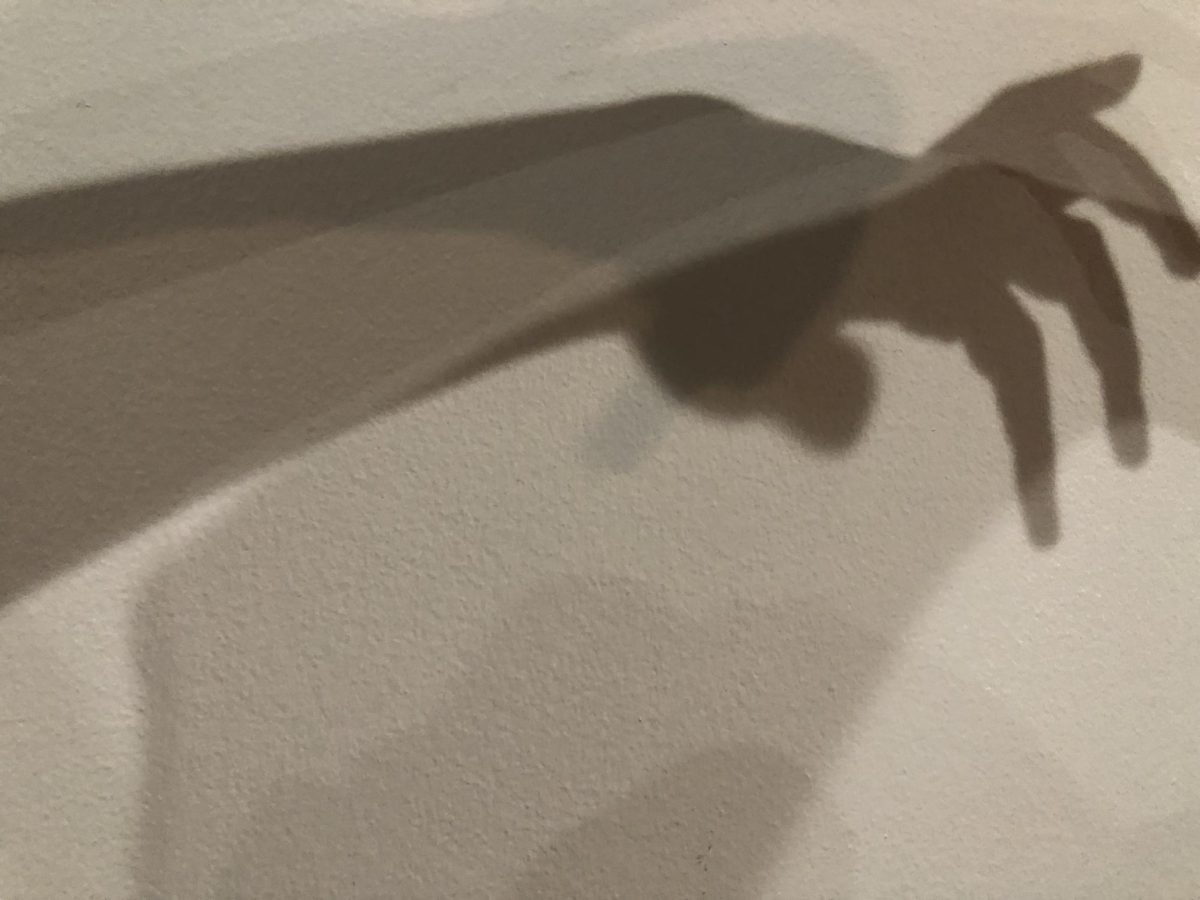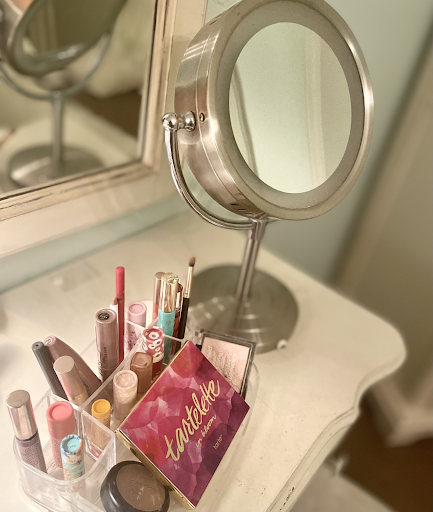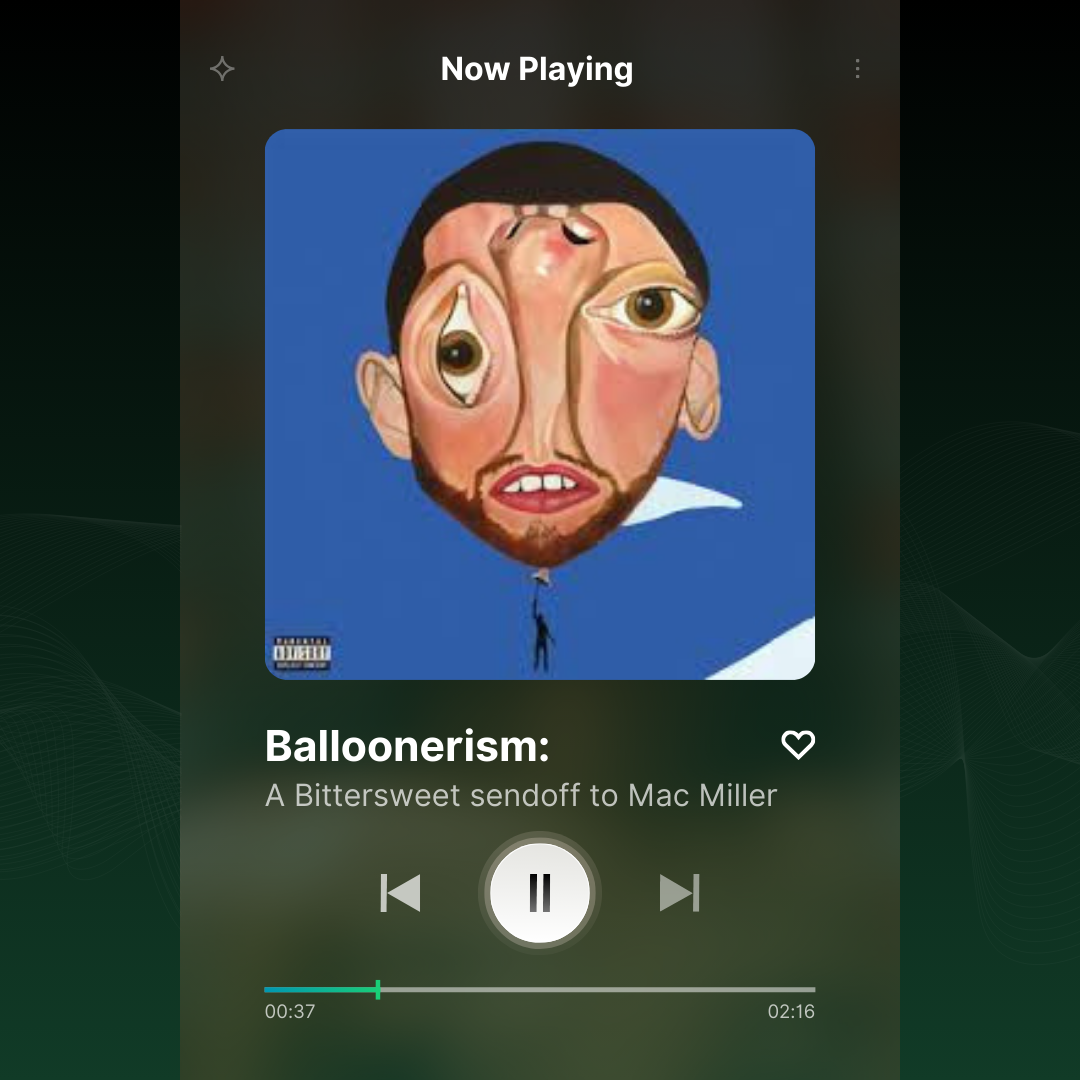I didn’t know that “it” wasn’t real at first; I used to think it was normal, that everyone felt it; I thought that God had given me the ability to see spirits, or that ghosts were pressing their fingers into my hair, trying desperately to push me out of my own body. Then, I stopped believing in God, but “it” didn’t stop. I heard voices and alarm bells and saw shadows in my peripheral vision; something was going on, but I had no idea what it was. After some research, I discovered that I was experiencing hallucinations, false perceptions of reality affecting the five senses.
Hallucinations, along with delusions, are two symptoms of psychosis, defined by the National Institute of Mental Health as “a collection of symptoms that affect the mind, where there has been some loss of contact with reality.” Although it is often confused with psychopathy, listed as antisocial personality disorder in the Diagnostic and Statistical Manual of Mental Disorders (DSM-V) psychosis itself is a symptom of a mental disorder, not a standalone condition. Psychosis can impact social functioning, and, when left untreated, can lead people to harm themselves or others. However, this does not mean that people with schizophrenia or other psychosis-causing disorders are inherently evil or violent.
Symptoms of psychosis can include suspicion and paranoia, illogical speech and thought, decline in self-care, and difficulty distinguishing reality from fantasy. During a psychotic episode, one might seem unmotivated, even “lazy” and struggle to carry out daily functions. It is important to note that mental conditions manifest differently from person to person, and these symptoms may look different in everyone.
If symptoms are mild enough, they can go unnoticed for years. I lived with my mother all my life, yet she never knew what I went through. Whenever I told her what I saw, she chalked it up to my vivid imagination; I was a child, after all, and I was known for my numerous imaginary friends. Once, I saw a thin figure walk across the hall from my bedroom into my mother’s. It looked like a small man with a brown coat, except he had nothing but a doorknob-like protrusion where his head should have been. When my mother and I went to look for him, he was nowhere to be found. She thought I was lying, but I knew “he” was real; how could he not be?
Of course, I didn’t normally have such vivid hallucinations; usually, I just felt the “ghosts” here and there, sometimes one, sometimes three, each sifting through my hair to find the perfect spot to shove themselves into my body. It never occurred to me that something could be wrong with me; I was too focused on praying them away. I imagined that they would be deterred by my unwavering love for God and find someone else, like my mother told me they would. I thought that everything would be normal if I trusted God. I prayed for him to hold my hand to make me feel braver, and I felt a bit better, but deep down, I knew that I was alone.
I didn’t think anyone would be able to help me, so I never told anyone. I knew no one would believe me, not even my mother; I was alone, except for God, and he barely helped. Regardless, I prayed hard and constantly battled to get rid of them, or at least keep them out of my hair for one more day. I thought it was over after I left my old apartment, that they would stay there and haunt the new little boy who lived there, but they didn’t. Instead, they brought new friends who grinned at me from the shadows, their yellow eyes taunting me. They followed me into my dreams and tried to pull me into the depths of Hell, and their sweaty palms burned my skin as I trembled in fear. I was terrified of sleep, yet I could not escape them when I was awake. I was miserable, but luckily, I wasn’t going to be alone for much longer.
Even if she couldn’t see the demons or feel the ghosts, my mother knew something was wrong. I felt lethargic, and life seemed meaningless. Concerned for my mental health, she made an appointment with a psychiatrist who diagnosed me with major depression, the cause of my hallucinations, and I was prescribed antidepressants. The first weeks were rough, but eventually, I felt so much better than before, and my hallucinations were limited to times when I had missed days’ worth of medicine.
Although studies conducted on children and adolescents suggest that hallucinations can be transient, normal parts of child development that can be independent of mental illness, there are several other explanations for them as well.
While the direct causes of psychosis are a mystery, there are many possible explanations for the development of the disorder. It can be caused by mental disorders, such as bipolar disorder or depression, or it can be caused by severe stress and/or anxiety. Psychosis can also be induced by sleep deprivation, prescription medicines, or alcohol/drug use.
Living with psychosis can feel isolating and scary, so it’s important to have a support system of family and friends, either for yourself or others, to guide you or your loved one through psychotic episodes and help in cases of emergencies.
While this article is not meant to diagnose psychosis, hopefully it can shed some light onto the struggles faced by people who suffer from psychosis. Creating stigma surrounding psychosis causes nothing but harm, so building an understanding of the condition is imperative to ensuring better outcomes for sufferers of psychosis and the community.
If you believe that you or a loved one may be experiencing psychosis, it is best to contact your healthcare provider for guidance.








